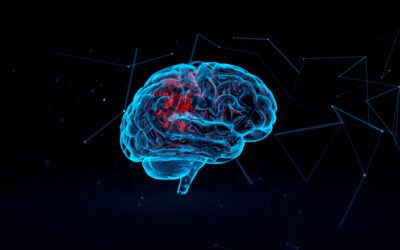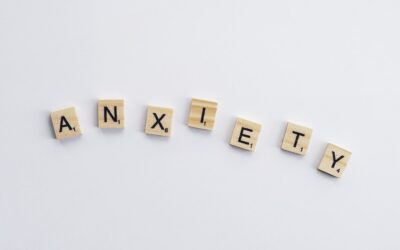Mental Health: When is the Right Time to Seek Help
[wpseo_breadcrumb]

Although stress, worry, and depression are common emotions, they may point to a more serious issue if they persist. According to a survey in 2020, there were 21 million adults in the US who experienced at least one major depressive episode. It’s reasonable to have some negative feelings given the state of the world, but it’s important to distinguish between everyday stress and conditions that call for medical treatment. Keep reading to learn when it is the right time to seek help from a professional.
Signs to Seek Professional Mental Help
1. Stress is too Much to Handle
Stress is a physiological reaction to what your brain interprets as a dangerous circumstance. According to Yale Medicine, neurotransmitters in the brain cause the amygdala, which controls the flight-or-fight response, to become active. Significant life changes, such as a divorce or a serious illness, pressure at work, or financial constraints, are common causes of stress.
Even though stress is a natural part of life, long-term stress can have detrimental effects on the body, such as a reduced immune system. Someone who is always stressed may experience chronic headaches, gastrointestinal problems, or even muscle pain. When anything is amiss, and we need to slow down to reduce our stress levels, our bodies typically give us the first warning. It’s one of the reasons why taking some time to unwind or meditate may be so beneficial.
Visit a psychologist, psychiatrist, or certified professional counselor if stress dominates your life or the life of someone you know. These professionals can create a treatment plan that is suitable for your needs.
2. Depression Is Your New Normal
Depression is a common mental health condition that negatively impacts your ability to function. The ability of brain neurons to communicate with one another is impaired when depression sets in. Depression might manifest as social disengagement, restless sleep, weight changes, or aches and pains. Someone who is depressed will experience these feelings in addition to grief, remorse, and the loss of once-loved activities.
Numerous therapies may be beneficial, but it’s critical to consult a specialist who can determine whether a bad mood is only momentary or a sign of clinical depression.
3. When Anxiety Becomes Crippling
Your brain’s response to a perceived threat causes stress and worry. Potential signs are anxiety, difficulty breathing, and an elevated heart rate. Anxiety is frequently felt after a severe or stressful incident and passes with time. However, an anxiety disorder includes persistent worry even after the threat has passed. Getting help is crucial when your anxiety has become so severe that you cannot function.
4. Changes in Appetite or Sleep Pattern
Have your sleep patterns or appetite changed or been disturbed? “Mental health issues can profoundly impact our sleep and appetite,” notes Dr. Friedman. “An individual who is anxious or in a manic state may have sleeplessness, while someone who is severely depressed might sleep all the time,” she says. Similarly, the clinical psychologist explains that “when overwhelmed by stress, some people overeat to dull their emotions, while others find they can barely eat.”
If you have been eating or sleeping less or more than usual for a long time, it may be time to take a step back and evaluate the issue.
5. Difficulty Maintaining Relationships
Do you find it challenging to build and sustain relationships? Several things, including making us withdraw from those who are important to us, causing unease in a relationship, or relying heavily on another person for emotional support, can be caused by our mental health and impact our relationships.
It may be difficult for people going through psychological or emotional difficulties to form friendships at work or school, join teams, or interact with superiors, coworkers, or subordinates. New or ongoing relationships may suffer as a result of any of these circumstances.
Therapy may be helpful if you frequently argue with others or find it difficult to communicate your emotions to them.
6. Performance Deterioration at Work or School
One of the symptoms of psychological or emotional problems is a decline in performance at work or school. Mental health problems can affect one’s ability to pay attention, concentrate, remember things, have energy, and be energetic. They can also cause apathy, which can make it difficult to enjoy or even want to go to work. It could cause a lack of interest and mistakes at work, which would lower productivity. Sometimes, depending on the nature of your profession, it could be risky for you and others.
For instance, whether you’re a caretaker, doctor, law enforcement official, or someone who drives or operates machinery, you can improve your ability to self-regulate your behavior and create more flexible coping strategies for stress with the assistance of a therapist.
7. Compromise in Physical Health
We don’t pay as much attention to mental health as physical health, which is a grave error considering how closely related the two are. Examples of mental health issues that directly and indirectly impact our physical health include stress, anxiety, and depression. The central nervous system, which is directly impacted by psychological disorders, in turn, affects all other bodily functions (endocrine, immune, cardiovascular, cerebrovascular, etc.).
Many physical health conditions, such as chronic inflammation, headaches, fatigue, muscle aches, increased cardiovascular reactivity, and weakened immune systems, are caused by their indirect connections. If you have been experiencing any of these health problems for a long time, you might benefit from getting care and support from a trained mental health professional.
When to Seek Professional Mental Health Assistance
It can be difficult to distinguish between a typical response to a stressful situation and a more serious mental health issue. Your mental health can only be accurately assessed by a professional, such as a psychologist, psychiatrist, or licensed professional counselor, who can also make recommendations for therapy if necessary.
When assessing your mental health and determining whether you require professional treatment, there are a number of symptoms to keep an eye out for.
- A persistent feeling of sadness
- A decline in social engagement
- Changes in eating or sleeping habits
- Increased use of alcohol or drugs
- Visual or auditory hallucinations
- Emotionally extreme highs and lows
- Suicidal or self-harming ideas
- Unusual weight gain
- Lack of energy
- Paranoia
The absence of security or hope distinguishes sadness from depression. If grieving lasts longer than a month after a traumatic event, you should get expert help.
Northwest Psychiatry & TMS offers a variety of therapies provided by board-certified psychiatrists to assist you in managing your mental health and having a fulfilling life. Contact us right away if you or a loved one needs help!
How to Maximize the Results of TMS Therapy
Learn the key strategies to enhance the effectiveness of TMS therapy and ensure a successful therapeutic experience.
...What Is Treatment Resistant Depression and How Can TMS Help?
By harnessing the power of neurostimulation and promoting neuroplastic changes, TMS opens a new chapter in the quest for effective solutions for TR...
Healthy Resolutions For Your Mental Health in the New Year
As we bid farewell to the old and embrace the new, the start of a fresh year often marks a time for reflection and renewal. While traditional resol...
Can TMS Help Seasonal Affective Disorder?
Multiple studies have demonstrated that TMS, or Transcranial Magnetic Stimulation, is not only effective but also has long-lasting benefits.
...How to Advocate for Yourself as a Person with Anxiety
By taking an active role in your own well-being, you can make a significant impact on your journey towards healing.
...The Science Behind TMS And Anxiety
What is Anxiety? Anxiety and trauma-related disorders encompass various conditions that involve difficulties in processing fear and subsequent beha...
Myths and Misconceptions About TMS Therapy
Misconceptions surrounding transcranial magnetic stimulation (TMS) have unfortunately dissuaded patients from considering it as a potential treatme...
Tips For Finding A Qualified TMS Technician
Recommendations from Peers While searching for a TMS technician, seeking referrals and recommendations from trusted sources can truly be invaluable...
What Is The Future Of TMS Therapy?
The remarkable advancements in deep brain stimulation techniques have brought about significant breakthroughs in the treatment of major depressive...
Uncovering the Causes of Mental Health Issues in America
National Mental Illness Facts & Statistics According to the National Alliance on Mental Illness, “1 in 5 U.S. adults experience mental illnes...
TMS Therapy – Understanding Its Role In Treating Anxiety and Depression
TMS (Transcranial Magnetic Stimulation) first appeared in the 1980s and has since been FDA-approved to treat mental health issues. This method has ...
Seven Lesser-Known Signs of Anxiety
Anxiety is a common mental health condition that affects millions of people worldwide. While many people are familiar with some of the more well-kn...
5 Tips to Improve Your Mental Health
Mental health is a broader arena that involves an individual’s emotional, social, and psychological well-being. Health professionals regard p...
TMS Treatment as an Alternative to Antidepressant Medication
Depression is extremely common, and there may be many reasons for one to develop depression. It could be a death in the family or a broken relation...
Mental Health: When is the Right Time to Seek Help?
What is TMS and how does it work? [wpseo_breadcrumb]Mental Health: When is the Right Time to Seek Help [wpseo_breadcrumb]Although stress, worry, and...
What to Expect During a TMS Therapy Session
What Does a TMS Therapy Session Look Like? Coping with depression can be extremely difficult and even more challenging when treatments like therapy...
The Healing Power of Art Therapy: How Creativity Can Improve Mental Health
Art therapy is a unique and innovative form of therapy that harnesses the power of creativity to promote healing and improve mental health. Art mat...
7 Ways TMS Therapy Can Help
Depression is a treatable condition, but standard therapies are ineffective for some forms of the illness. TMS (transcranial magnetic therapy) is o...
The Role of Mindfulness in Managing Anxiety: Tips for Incorporating Mindfulness into Your Daily Routine
In today’s fast-paced world, anxiety has become an all too common experience for many people. It can leave you feeling overwhelmed and discon...
Five Surprising Ways Mental Health Impacts Physical Health
Mental and physical health are often thought of as two separate entities, but the reality is that they are deeply intertwined. Research has shown t...




















